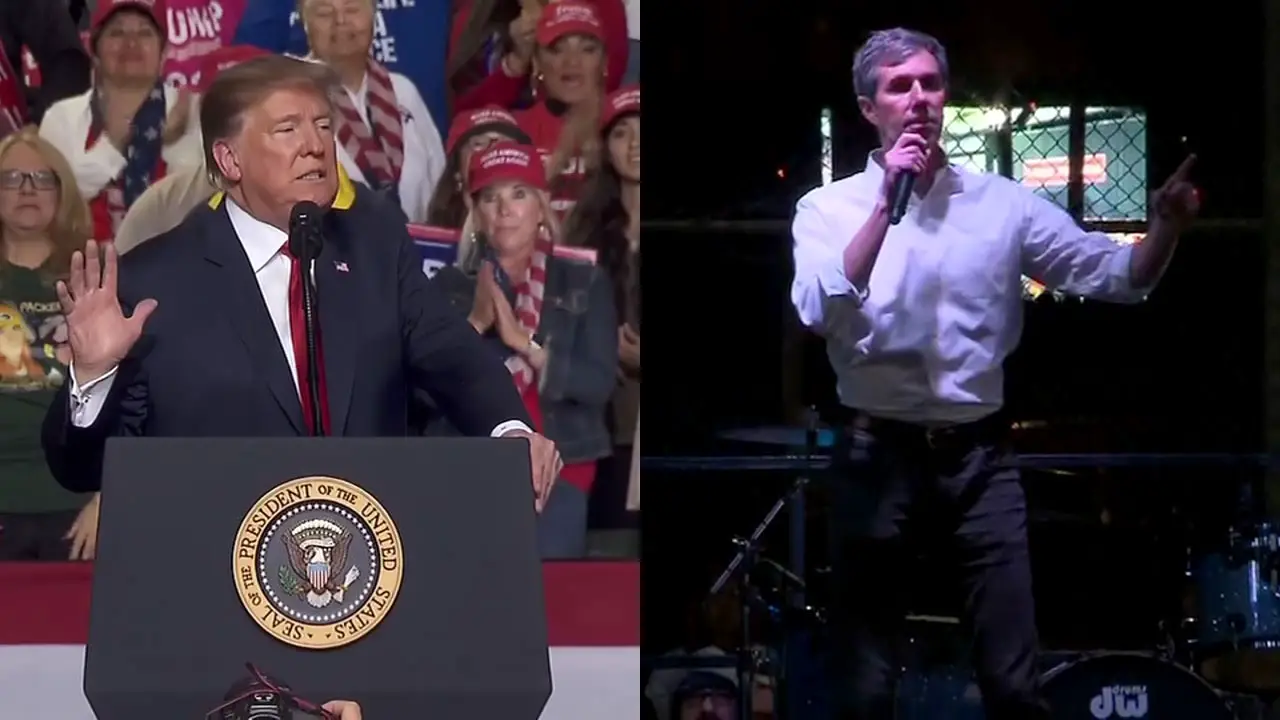On Monday night, in El Paso, Texas, political watchers were treated to a preview of the 2020 Presidential campaign with competing rallies held in the same city at the same time, with opposing messages and visions for the country. During President Trump’s rally, the President called for an expanded border wall and unequivocally stated that “walls save lives.” At the counter-rally, headlined by Beto O’Rourke, the former Congressman called for the exact opposite, stating that “walls don’t save lives.”
Depending on your political persuasion, you can decide where Trump and O’Rourke fit in the famous opening line of Charles Dickens’ literary masterpiece, A Tale of Two Cities:
“It was the best of times, it was the worst of times, it was the age of wisdom, it was the age of foolishness, it was the epoch of belief, it was the epoch of incredulity, it was the season of Light, it was the season of Darkness, it was the spring of hope, it was the winter of despair, we had everything before us, we had nothing before us, we were all going direct to Heaven, we were all going direct the other way”
In essence, the city of El Paso served as a backdrop on which both men drew their political viewpoints. For President Trump, the city of El Paso, which is specifically cut off from Mexico by a large and well-defined border wall, served as an example and reason why he wants to expand the wall to other places on the border.
For Beto O’Rourke, who calls El Paso his hometown, the city serves as an example of what it means to be a diverse border community which is a safe and prosperous area not because of the wall, but in spite of it.
El Paso, on Monday night, was indeed a tale of two cities being nudged and cultivated depending on your political view of the border wall issue.
2020 Preview
Beto O’Rourke has not decided whether he will launch a 2020 Presidential campaign, but his message last night was the same message that would be delivered by any of the 2020 Democratic candidates.
In that vein, Reuters called the rallies a preview of the 2020 Presidential election:
O’Rourke, who narrowly lost a 2018 bid for a U.S. Senate seat, accused Trump of stoking “false fear” about immigrants and telling “lies” about his hometown El Paso, which Trump said was a dangerous place before it had a border fence.
“Here is one of the safest cities in the United States of America, safe not because of walls but in spite of walls,” O’Rourke told a crowd of several thousand supporters, many waving “Beto 2020” signs and wearing “Immigrants Make America Great” baseball caps.
Two hundred yards away in El Paso County Coliseum, Trump told his supporters that O’Rourke had “little going for himself.”
“We are all challenged by a young man who lost an election to (Republican Senator) Ted Cruz,” said Trump, surrounded by banners reading “Finish the Wall.”
Trump was in El Paso to argue for a wall he says can protect Americans from violent criminals, drugs and a “tremendous onslaught” of migrant caravans.
The rally was his first direct clash with a potential 2020 rival, albeit on separate stages.
For Beto, this was a chance to once again try to capture the excitement he generated during his run against Texas Senator Ted Cruz in 2018. Democrats will have to decide whether he seemed able to counter the President and whether he can carry the mantle forward for the next two years over a grueling campaign.
The El Paso Border Wall
Trump has claimed that the border wall in El Paso made the city safer, O’Rourke says the opposite is true. A local news station in Texas tried to get to the bottom of the statistics and found some mixed results:
KFOX14 looked into the FBI’s data for violent crimes in El Paso.
A violent crime is defined by the FBI as murder, non-negligent manslaughter, rape, robbery and aggravated assault.
We started with the year 2005, three years before the barrier was built.
The FBI database shows there were 210 cases of violent crimes in 2005.
That number climbed to 310 cases in 2010, when the barrier was already in place.
That number dropped to 250 in 2011.
That means in 2005, there was a crime rate of 35.4 percent per capita of 100,000.
The number then shoots up to 47.6 in 2010 per capita of 100,000, then back down to 37 in 2011.
In 2016, the crime rate slightly increased to 39 per capita of 100,000 people.
The issue with quantifying whether a border wall makes the city of El Paso safer all depends on the statistics that better support your position. As the stats above found, the FBI statistics on violent crime don’t necessarily support Trump’s claims.
Politifact Texas, however, gave credit to the border wall for reducing crime in El Paso. On the other hand, other media outlets, such as the New York Times, call Trump’s claim about the city being safer due to the wall an outright falsehood.
Whether physical barriers help, hurt, or make no difference, at this point, is almost irrelevant for the conversation. The dividing lines have been drawn. President Trump continues to stake out ground in support of building a border wall, and Democrats have firmly planted their flag in the anti-wall camp.
The issue has become so highly politicized that it’s akin to the way Republicans responded to President Obama on certain issues. If the President supports something, the other party will oppose it regardless of the veracity of the argument on either side.
Donate Now to Support Election Central
- Help defend independent journalism
- Directly support this website and our efforts
